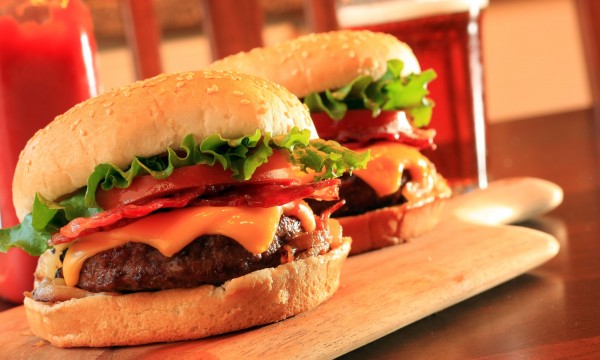It's easy to imagine how blood sugar can lead to weight gain, but do you know about how your diet affects your heart? These are some important ways that blood sugar can directly impact your heart health.
- Browse Categories
- All Tips
-
Home & Garden
- All
- Appliances
- Bathroom
- Cleaning
- Crafts
- Decorating
- Electrical
- Flooring
- Furniture
- Garage Door
- Gardening
- Green Living
- Heating
- Home Alarm Systems
- Home Maintenance
- Home Remedies
- Home Security
- Home Staging
- House Sitting
- Junk Removal
- Kitchen
- Lawn Care
- Lock Systems
- Moving
- Outdoor Living
- Pest Control
- Plumbing
- Renovation
- Roofing
- Snow Removal
- Storage
- Tools
- Tree Service
- Health
- Family
- Travel
- Auto
- More Tips
Your account is now active!

5 ways your meals connect to your heart health
October 9, 2015

1. It can raise blood pressure
- High blood sugar produces unstable forms of oxygen called free radicals.
- These nasty molecules damage the arteries, making it harder for blood vessels to do their job of keeping blood pressure normal.
- Free radical also make cholesterol more likely to stick like glue to artery walls.
2. Insulin changes can lead to heart disease
- The high levels of insulin that your body needs to tame all this blood sugar are pretty nasty, too.
- Insulin can indirectly raise blood pressure, make blood more likely to form heart-threatening clots, and increase inflammation. All of which raise your heart disease risk.
3. High blood sugar foods are usually high in fat
- Over time, meals that cause blood sugar to spike also tend to lower high-density lipoprotein (HDL) or "good" cholesterol.
- Blood sugar spikes also raise triglycerides, fats that are toxic to cells, increasing the risk of heart disease — and of sudden cardiac arrest.
4. The science shows blood sugar can hurt the heart
- Major studies have shown how powerful these damaging effects can be to the heart.
- In a study of more than 43,000 men age 40 and older, those whose diets boosted blood sugar the most were 37 percent more likely to develop heart disease in the following six years.
- In another study of more than 75,000 middle-aged women, those whose diets boosted blood sugar the most were twice as likely to develop heart disease over 10 years.
- For overweight women, such a diet was even more threatening. For instance, their triglycerides were 144 percent higher than those of women who ate a healthier diet.
5. You can fix your blood sugar levels
- Fortunately, the phenomenon works in reverse, too. The kinder your meals are to your blood sugar, the kinder they'll be to your heart.
- Several studies have found that people who ate the fewest blood sugar-boosting foods had higher levels of HDL cholesterol, lower triglycerides and fewer heart attacks.
Doctors now know blood sugar is intimately connected with heart attack risk. The rollercoaster blood sugar levels can lead to clogged arteries and higher blood pressure, and it can raise the level of inflammation in the body. But you could reverse it with some simple diet choices.
National advertising powered by Mediative.com. Yellow PagesTM, Walking Fingers & DesignTM, YP.caTM, Find. & DesignTM, YellowPages.caTM, Canada411TM and YP ShopwiseTM are trademarks of Yellow Pages Digital & Media Solutions Limited in Canada. All other trademarks are the property of their respective owners. Copyright © 2018 Yellow Pages Digital & Media Solutions Limited. All Rights Reserved.
More Tips
The material on this website is provided for entertainment, informational and educational purposes only and should never act as a substitute to the advice of an applicable professional. Use of this website is subject to our terms of use and privacy policy.







